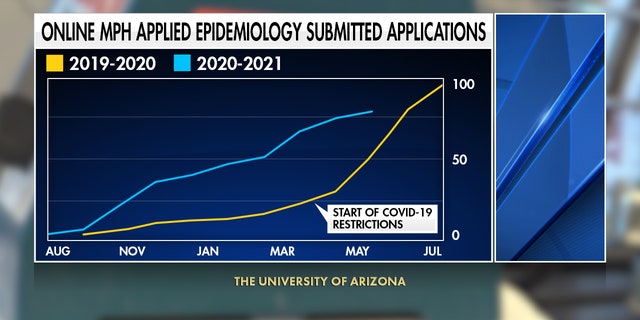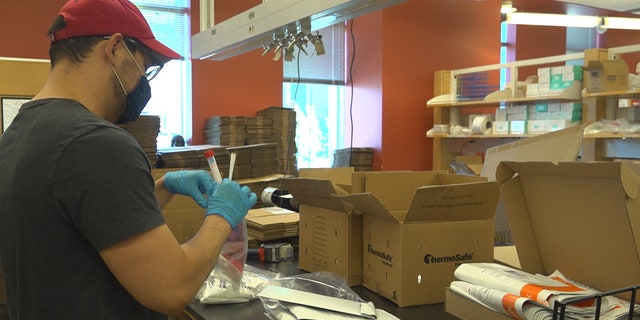TUCSON, Ariz. — During the pandemic, schools across the country have seen a sudden spike in interest for public health degrees, specifically epidemiology. Whether Dr. Anthony Fauci inspired them or whether people just want to give back, people are quickly signing up to learn more about diseases and how they spread.
Emory’s School of Nursing in Atlanta has seen a 32% increase in applications over the last year. Some of their most popular offerings include the nurse anesthetist program, which experienced a 171% increase in applications, and the distance accelerated BSN program, which has seen a 118% increase in applications. The Rollins School of Public Health has seen a 45% increase in the number of applications for the fall 2021 semester.
At the University of Central Florida, nursing programs have seen a big increase, too, of about 26% this year for its bachelor’s degrees.
Out west, the University of Arizona has seen a 26% increase overall for all its epidemiology applications compared to this time last year and it’s still accepting new applicants. In fact, interest in the MPH Applied Epidemiology program has nearly tripled.

The University of Arizona has seen a 26% increase overall for all its epidemiology applications compared to this time last year and it’s still accepting new applicants. In fact, interest in the MPH Applied Epidemiology program has nearly tripled (Stephanie Bennett/ Fox News).
“I think it would be right to say that COVID-19 has really brought public health to the forefront of our lives,” said John Ehiri, professor of public health and associate dean for academic affairs at the University of Arizona’s Mel and Enid Zuckerman College of Public Health. “Individuals really feel empowered to use that training to help themselves and their families, as well as their communities here in Arizona, nationally and even globally.”
Collin Catalfamo is a second-year graduate student, earning a doctorate in epidemiology. He said going to school during a global pandemic has given him invaluable real-world experience.

The CDC has paid for the University of Arizona to study the virus and vaccine’s impacts on high-risk groups like first responders and front-line workers through the AZ Heroes program. Students are packing up boxes with nasal swabs, test tubes, and return envelopes for the program’s participants (Stephanie Bennett/Fox News).
“You don’t want to hope for it, but it’s honestly the best learning experience you can get as an epidemiologist,” Catalfamo said. “Living through this and being able to start doing some of the research I do now, as the pandemic is starting, has really been a once-in-a-lifetime learning experience”.
When he’s not volunteering at vaccine sites, Catalfamo also works with the CoVHORT research study which is providing vital data on health outcomes related to COVID infections and long-term health effects.
CLICK HERE TO GET THE FOX NEWS APP
Current students like Catalfamo are busier than ever with additional projects from testing antibacterial soaps, to researching the virus’s impacts, to helping vaccinate the community. The CDC has even paid for them to study the virus and vaccine’s impacts on high-risk groups like first responders and front-line workers through the AZ Heroes program.
“We are looking at COVID-19 in high-risk occupational groups,” said Shawn Beitel, research specialist at the university. “So these are first responders healthcare workers, and essential frontline workers here in Arizona. We do weekly testing for these individuals, where we’re providing them specimens to do nasal swab samples, and this is what students from our college help participate in creating these kits to provide to them. We want to know how effective the vaccines are, how long the immune system is able to help protect someone against COVID-19 along with looking at how the different variants, play a role with the vaccines as well.”
